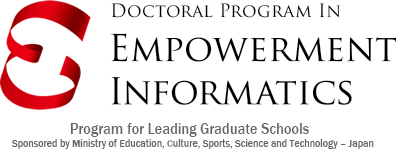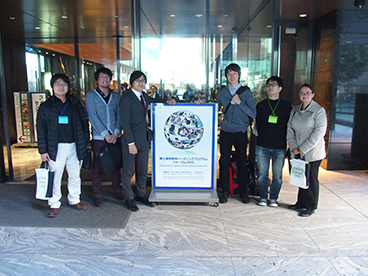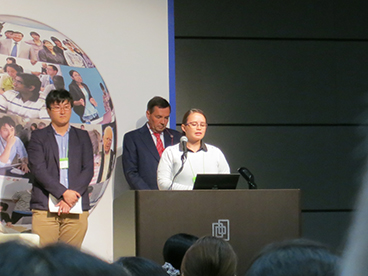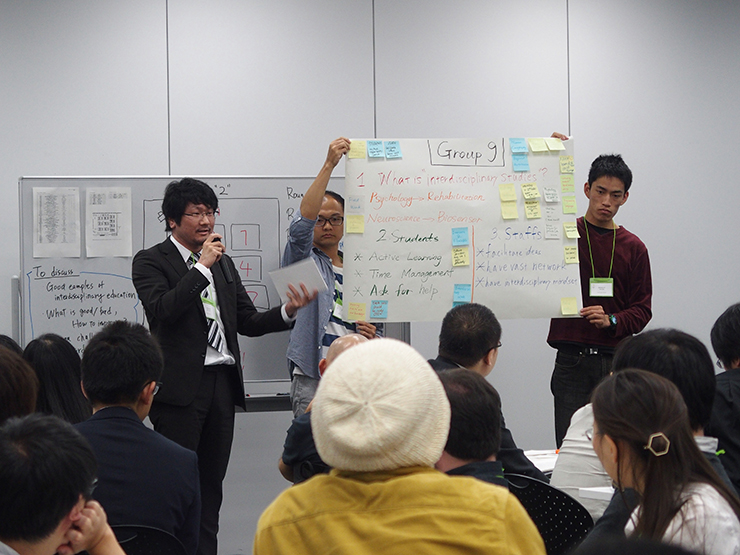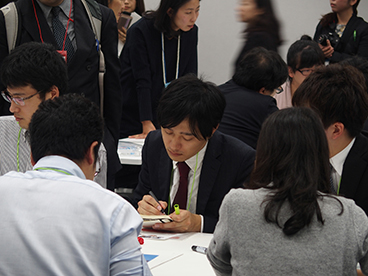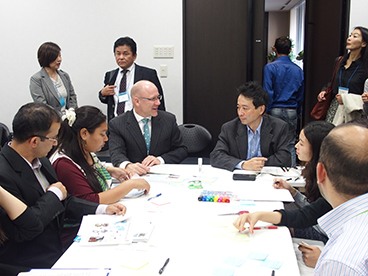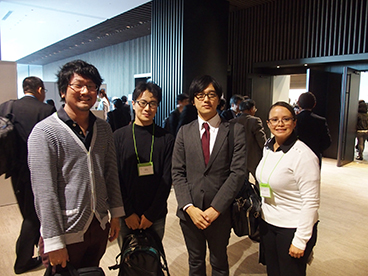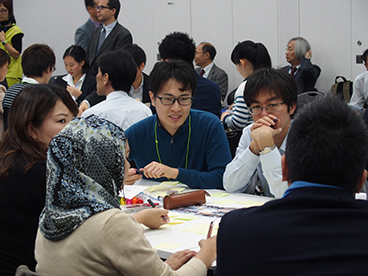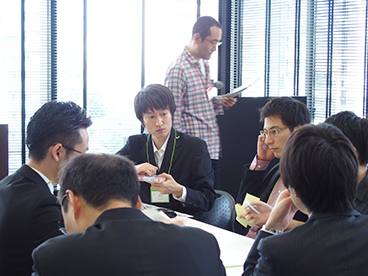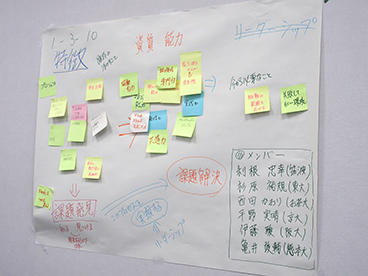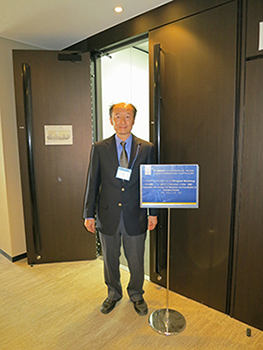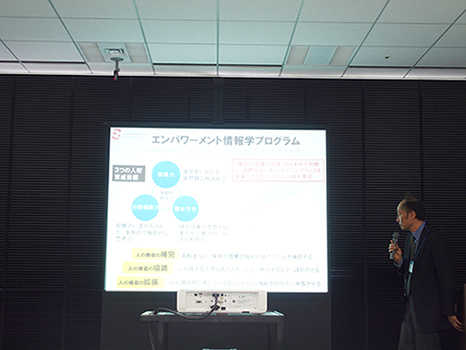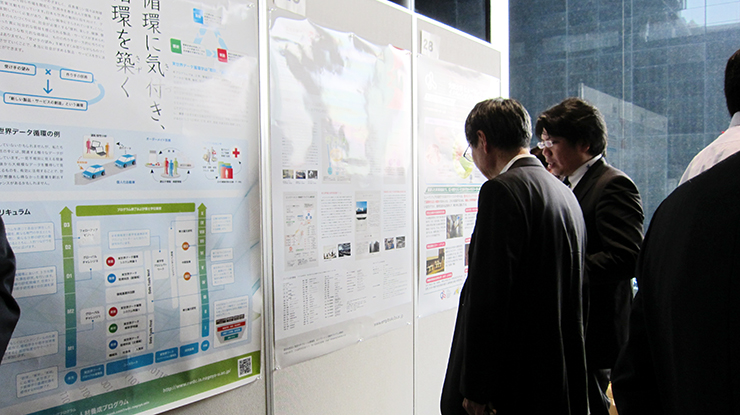Report on attendance at Program for Leading Graduate Schools Forum 2015
The Program for Leading Graduate Schools Forum 2015 was held at Bellesalle Shinjuku Grand on Saturday and Sunday, October 24-25, 2015. The goals of this forum were to communicate to society at large the state of reforms to doctoral education and the kinds of students being educated and to reform and enhance graduate education across Japan by realizing high-quality programs through sharing of information on the state of implementation of each program and issues faced. It also was intended as an opportunity for discussing the progress and development of doctoral education in response to societal changes.
Five students from the Ph.D. Program in Empowerment Informatics (EMP) (first-year student Nobumitsu Shikine, second-year student Tadayuki Tone, third-year student Perusquia Hernandez Monica, and fourth-year students Shota Ekuni and Ryo Wako) took part in the students’ forum held as part of the larger forum. In addition, EMP invited Yuichi Miwa from Hitachi, Ltd. to join the discussion during the students’ forum, commenting from perspectives including the expectations of industry for the program.
In this Program for Leading Graduate Schools Forum, we were able to take part in discussions about the past, present, and future of Leading Graduate Schools currently in the program from across Japan. The program was split into two days. On the first day, we discussed distinctive courses offered at each Leading Program, grouped into themes. I participated in the discussion on the theme of alliances with industry, public institutions, etc., describing examples from the Ph.D. Program in Empowerment Informatics while also taking turns with representatives from private-sector firms in the kinds of efforts that could help improve production in Japan while taking advantage of the individual strengths of universities, companies, and government. Numerous highly creative solutions were proposed, including creating an international association to develop social media to strengthen the ties among Leading Programs and carry out internship placement services as well as reporting on results. On the second day, we presented these to the whole forum. The forum provided positive inspirations that can serve as indicators for future development, as learning about the efforts of various Leading Programs seemed to make clear both the points of which University of Tsukuba can be proud and points on which it can learn from other universities.
The forum featured discussion among students in Leading Programs at each university of the actual state of education and related issues. We reached the conclusion that although human resources with leadership are those who can discover social issues and lead to their resolution, in its current state education is lacking in education and a support structure through the cycle of analysis of results, learning, and taking on new challenges in addition to identifying and solving issues. Through these discussions, we had the opportunity to interact with members from other universities and not only learn about the efforts of those universities but also hear various views. This proved an excellent opportunity for objectively judging our own standing among students participating in Leading Programs across the country.
During the poster session on the first day of the forum, October 24, Associate Prof. Kenji Suzuki (EMP Public Relations Committee Chair) described an overview of the program to attendees. Also, during the program workshop held on the 25th EMP Program Leader Hiroo Iwata spoke on the subject “The Ph.D. Program in Empowerment Informatics: Creating Points of Contact with Society through Exhibition,” discussing partnership with society from the perspective of adapting and contributing to a changing society. In the staff seminar held on the same date, related administrative staff took part, reaffirming and sharing information on the background of Lading Programs and their intents, through deepening their knowledge of graduate school promotion policies, industry-academy-government partnership, globalization of education and research, support for international students, the current conditions of Ph.D. human resources, URA and other policies related to Leading Programs, school administration, and project management.


